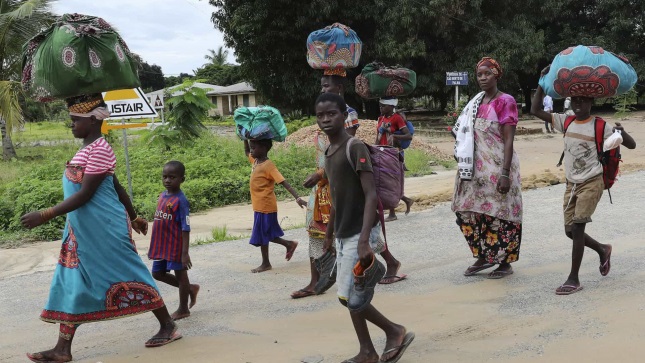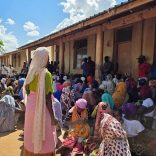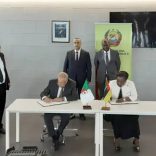UNHCR: Violence flares anew in northern Mozambique, forcing 22,000 to flee in a week
Mozambique: Military intervention without social development won’t succeed – analysts

File photo: Lusa
Analysts said on Friday that a foreign military intervention unaccompanied by social and economic development actions in Cabo Delgado would create “oil enclaves” in the areas where multinationals operate but “will not eliminate the armed insurgency.”
“I am not optimistic about a military solution as long as the official discourse is not emphatic about the sociological root of the conflict in Cabo Delgado,” said João Feijó, a researcher at the Observatório do Meio Rural (OMR), a Mozambican civil society organisation with studies on the war in the province.
Rwanda began on Friday sending military and police personnel to combat insurgency in the province of Cabo Delgado, northern Mozambique, as part of a 1,000-strong mission.
A military force from the Southern African Development Community (SADC) is also expected to be deployed in the province.
João Feijó believes that the presence of a Rwandan contingent and the deployment of a SADC force seems to be aimed at protecting the interests of multinationals involved in natural gas projects in the Rovuma basin, which could result in “an oil enclave.
“If the mandate of these forces is the protection of gas projects, although undeclared, we will have an oil enclave there and with a larger perimeter inaccessible to the population, who will be unprotected,” he said.
Military intervention, he continued, should run in parallel with decisive social and economic development actions that offer opportunities and hope to young people.
“There are thousands of young people in the region who are unemployed and humiliated by the state, who are easy prey for recruitment by armed groups,” the OMR researcher pointed out.
On the other hand, he continued, doubts are raised about the success of military actions conducted by conventional armies in an “asymmetric war against groups of guerrillas who easily mix with the population”, as happens in Cabo Delgado.
João Feijó emphasised that fighting the insurgency could be a prolonged war of patience, with risks of generating more cycles of violence and human rights abuses.
Adriano Nuvunga, a political scientist and director of the Centre for Democracy and Development (CDD), also warned of “the militarisation of the perimeter of the large natural gas projects and the continued disenfranchisement of the populations if the military intervention is not carried out with a boost in social development”.
“It is not enough to offer the military route to the population of Cabo Delgado without providing development because the seed of revolt will continue and will germinate as soon as the terrain allows this explosion,” Nuvunga said.
The Northern Integrated Development Agency (ADIN), a state entity, should start producing tangible results, mainly in job creation and youth training, so that the spirit of revolt does not multiply, he argued.
“Foreign military aid is not eternal, but revolt passes from generation to generation and continues when the causes are not tackled,” he stressed.
Adriano Nuvunga, who is also a university lecturer, warned of the risk of “operational confusion and difficulties in coordinating” foreign forces on the ground “if that relationship is not properly defined”.
“What kind of relationship will there be between the Rwandan force and the SADC force? Will it be of a vertical type, with subordination, or on an equal footing?” he asked.
Fernando Lima, journalist and president of the private ‘media’ group Mediacorp, also noted the danger of creating an “oil enclave” surrounded by “a population plagued by violence” if military action neglects to restore stability in all areas affected by the action of armed groups.
“The need for international military aid against extremism in Cabo Delgado is undeniable, but it is also necessary to break the cycle of abject misery that plagues a land potentially rich in natural resources,” Lima stressed.
The government, he said, should not persist in the error of ignoring the deep and local causes of the conflict in Cabo Delgado, betting on the acceleration of initiatives of job creation, professional training and generation of income for the communities.
“For now, foreign military intervention will be important to allow the reconquest of land in the hands of the rebels, to put them on the defensive, while the Mozambican Army is better trained to stay with the defence of Cabo Delgado province, but social and economic development is an urgent need,” stressed Fernando Lima.
Armed groups have been terrorising Cabo Delgado province since 2017, with some attacks claimed by the Islamic State group.
According to the United Nations, there have been more than 2,800 deaths according to the ACLED conflict registration project and 732,000 displaced.













Leave a Reply
Be the First to Comment!
You must be logged in to post a comment.
You must be logged in to post a comment.